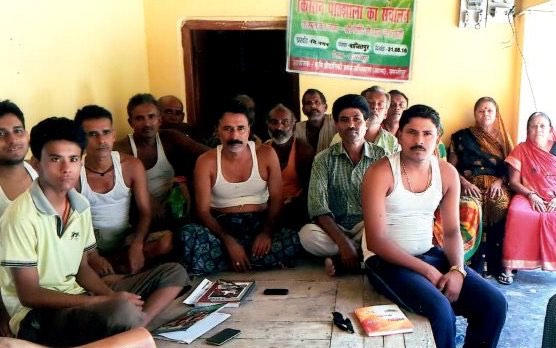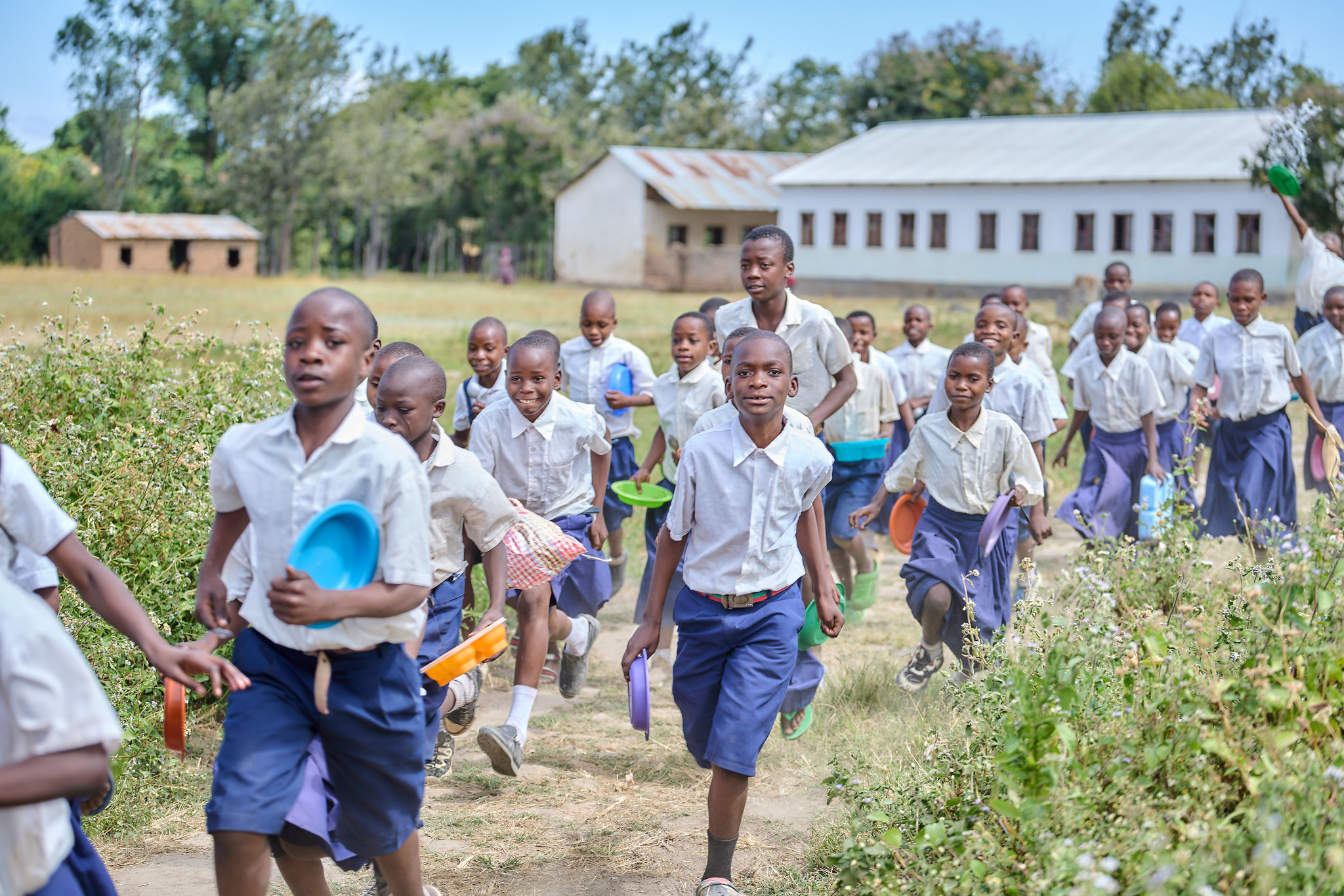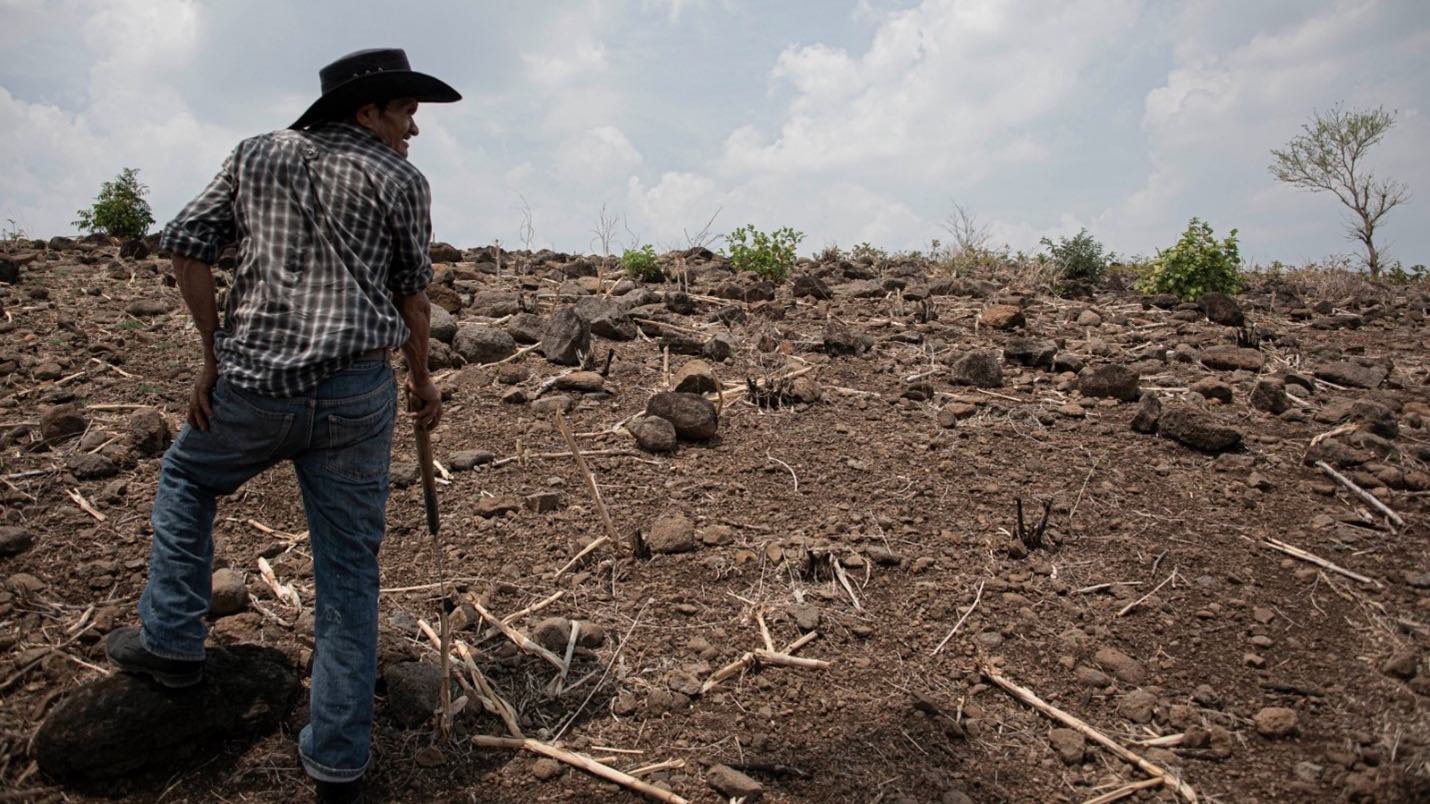Ever since Indian Prime Minister Narendra Modi announced his target of doubling farmers’ incomes by 2022 at a farmers’ rally in Uttar Pradesh (UP) in 2016, the central government, as well as several state governments, have remained occupied with developing ways and means to achieve this target by the proposed deadline. The UP government’s Million Farmers’ School (MFS) program is one such innovative effort to enhance farmers’ incomes through dissemination of agriculture-related information on technology, government schemes, and modern farming methods.
MFS, also popularly known as Kisan Pathshala, is an extension program that the government of UP initiated in 2017 with a view to encourage the use of modern farming techniques, to make farming more profitable, sustainable, and resilient. Unlike traditional extension services, MFS integrates various facets of agricultural knowledge into a packaged format, and delivers it through village-level trainings across all districts in the state. Printed materials—booklets, pamphlets—with such information are also distributed among participants.
The key objective of the MFS is to impart agricultural knowledge and techniques to farmers, which in turn can enhance agricultural production, improve soil health, and promote integrated and diversified farming systems.
The program complements the existing ones implemented by the Agricultural Technology Management Agency (ATMA), Krishi Vigyan Kendras (KVKs), and other agencies.
The training usually comprises of a daily 2-3 hour session in the evening for a module of 3-5 days in the primary school building in the village. Four such trainings—in Rabi 2017-18, Kharif 2018-19, Rabi 2018-19, and Kharif 2019-20—have taken place since its launch in 2017. Farmers receive technical and vocational training on topics such as improved varieties, crop and soil management practices, input use, and marketing. Farmers are provided information on the various government schemes available for the benefit of farmers, and how they could avail these benefits. Field-level officials from ATMA are deployed for training the farmers at the pathshala. The program is funded through the Rashtriya Krishi Vikas Yojana (RKVY) and utilizes the existing physical and institutional infrastructure in training farmers, making it cost-effective. As the name suggests, it is aimed at reaching out to a million farmers every time—the program has successfully attracted an average of one million farmers in each of its editions.
The most important role of agricultural extension is to provide knowledge, technical expertise, exposure to innovation and research, and to create awareness about the plethora of schemes that may benefit the farmer. In doing so, it helps expand farmers’ human capital endowment—both, their innate abilities and learned skills—enhancing their individual agricultural performance and, in turn, the aggregate agricultural performance.
In this light, in a recent IFPRI study evaluated the impact of the MFS on agricultural knowledge outcomes of participants vs. non-participants. Since the program is relatively new, it is too premature to evaluate its impact on technology adoption and incomes of farmers. Therefore, based on primary data collected through a survey of 1,336 households (participants and non-participants) from 64 villages across 16 districts representatively sampled in UP, the report assesses the direct quantitative impact of MFS on the level of agricultural knowledge of farmers. An indirect, but significant impact of the program has been a thorough revitalization of the existing agricultural extension machinery in the state. This is likely to have a positive ripple effect on other extension programs being run by the same government apparatus.
In terms of agricultural knowledge, participants are found to have 6%-14% higher agricultural knowledge compared to those who did not attend the training. The difference in the level of agricultural knowledge is observed across spatial and social dimensions—relatively larger differences in knowledge levels are seen among those belonging to less-developed regions and more disadvantaged social groups.
The program seems to have fared well in terms of farmers’ perceptions too. Participants cited a positive perception with regard to the program’s usefulness and relevance as the most important reasons for attending the training. Over 85% of participants thought that the trainers were well-trained and knowledgeable; about 90% believed that the information provided in the training was useful. In terms of comprehensibility of the training, almost 95% of interviewed participants said that they could understand what was being taught. The novelty factor in the course content, however, seemed to be missing—over 70% of participants agreed that they already knew most of what was being taught. Interestingly, farmers displayed great enthusiasm for inclusion of new and advanced knowledge on cultivation of high-value horticultural crops (such as mushrooms, aloe vera, et al), pisciculture, agro-forestry, floriculture, drip and sprinkler irrigation, and innovative agri-business models in the course curriculum as agenda for future training. On the whole, the programme has been received well—over two-thirds of the interviewed participants were willing to attend similar trainings in future, and would even recommend it to others in their circles.
Preliminary results from our study point to an encouraging start. Given its high penetration at the village-level, the MFS has potential to achieve much more.
Improving its knowledge transfer mechanism for higher impact, and evolving the course content to suit the expansive horizons of the modern farmer should be high on the program’s menu for upcoming editions. Scaling-up the program within the state, and replication of the model in other states may take the government a step further on the path for doubling farmers’ incomes by 2022.
Smriti Verma is a Research Analyst and Anjani Kumar is a Senior Research Fellow with IFPRI’s South Asia Region (SAR) office in New Delhi. This post first appeared in the Financial Express. Opinions are the authors’.







